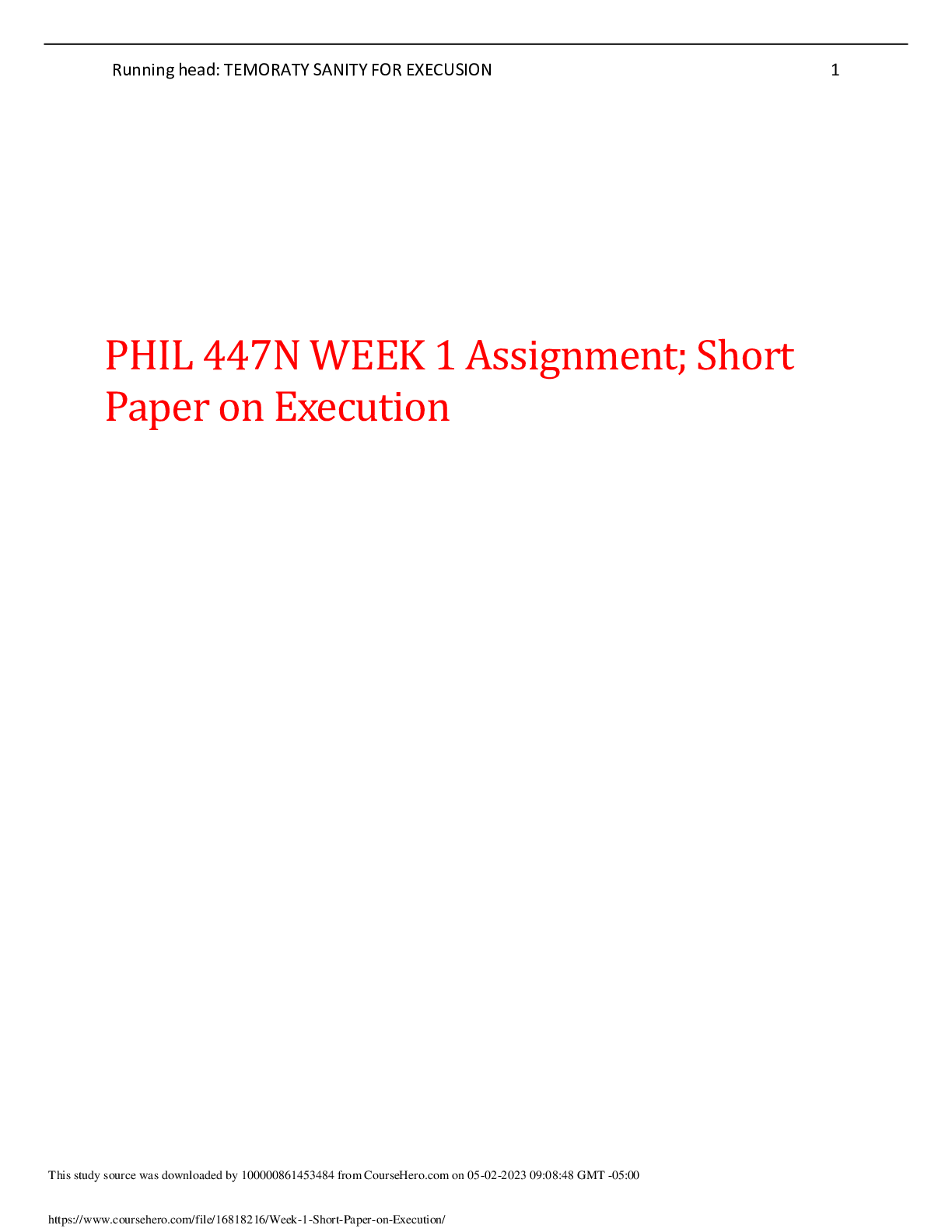Giving a Prisoner Mental Status Alerting Medication to Gain Temporary Sanity for Execution
On February 11, 2003, the Court of Appeals ruled that the State of Arkansas could force death row prisoner Charles Laverne S
...
Giving a Prisoner Mental Status Alerting Medication to Gain Temporary Sanity for Execution
On February 11, 2003, the Court of Appeals ruled that the State of Arkansas could force death row prisoner Charles Laverne Singleton to take anti-psychotic drugs to make him sane enough to execute. Singleton was going to be executed for a felony capital murder, but while he was in prison, he becomes psychotic. The argument, in this case, is whether or not giving Singleton the drugs was a proper reasoning for the execution. The real question is, why would they give Singleton an anti-psychotic drug and then execute him? Either way, drugs or not he was awaiting execution.
After researching the subject, it is illegal to kill the mentally insane (Drew, 2004). With it being illegal, it is evident as to why the Circuit Court forced Singleton to take anti-psychotic drugs. It is against the U.S Constitution to execute someone who is unaware of their actions resulting in death row (Panetti, 2003). However, many states will come to a decision depending on the level of sanity of the prisoner, making dependent on the particular prisoner. There have been many mentally ill prisoners executed for the mere fact of each state having their laws on this issue. “The National Association of Mental Health has estimated that five to ten percent of those on death row have serious mental illness (Panetti, 2003).”
The problem catching my attention about prisoners on death row seems to be them developing these mental illnesses while they are in prison. My viewpoint on the Singleton case agrees with the Eighth Circuit Court of Appeals decision in Arkansas. This decision was concluded after researching why the court made Singleton take anti-psychotic drugs before his execution. Although Singleton had gained a mental illness while he was in prison for more than twenty-four years, he knew why he was in prison. Singleton was sane at the time of being
convicted of murder and knew he was sentenced to death row. Regarding his conviction, it was only appropriate to forcefully give him anti-psychotic drugs for his schizophrenia which was developed after his conviction.
Many people could argue that it does not matter if prisoners are sane or insane, but it does. To have someone mentally unstable is the same as someone who is mentally delayed. People with an illness do not necessarily understand the repercussions for the actions they decide to take. Prisoners who come into prison mentally sane often end up insane which raises the problem of execution. Execution is viewed as dehumanizing to mentally insane prisoners essentially due to them not understanding why they are even in prison, to begin with after all those years. Mental illness is a huge issue for people in solitary confinement. Prisoners begin to see and hear unusual things creating bigger problems.
In Singleton’s case, he had been in prison for such an extensive period causing him to slowly welcome his execution only when he was on his medication. The rational decisions made by Singleton came when he took medication for his schizophrenia. Which then opened the door for proper execution by the Circuit Court. Singleton’s Lawyer filed a lawsuit against the court arguing the state could not forcefully restore mental competency and then execute Singleton (Drew,2004). This lawsuit did not help Singleton’s case, and he was sentenced to life in prison with no parole.
In conclusion, giving Charles Singleton forced medication for schizophrenia to open the possibility to execute him was not a wrong decision made by the Circuit Court of Arkansas. The
U.S Constitution states prisoners must be competent enough to know the reality of their punishment. To necessarily kill the mentally ill is dehumanizing. Singleton was mentally sane when he committed the crime, and it was unfortunate to have developed a mental illness in
prison. However, he needed to be forced back to sanity to follow through with the convicted plans the court had for him.
References
Panetti, Y. (2003, December 6). Death Penalty and Mental Illness. Milwaukee Journal Sentinel. Retrieved September 1, 2016, from http://www.amnestyusa.org/our-work/issues/death- penalty/us-death-penalty-facts/death-penalty-and-mental-illness
Drew, K. (2004, January 06). Executed mentally ill inmate heard voices until end. Retrieved from CNN.com: http://www.cnn.com/2004/LAW/01/06/singleton.death.row/
[Show More]



